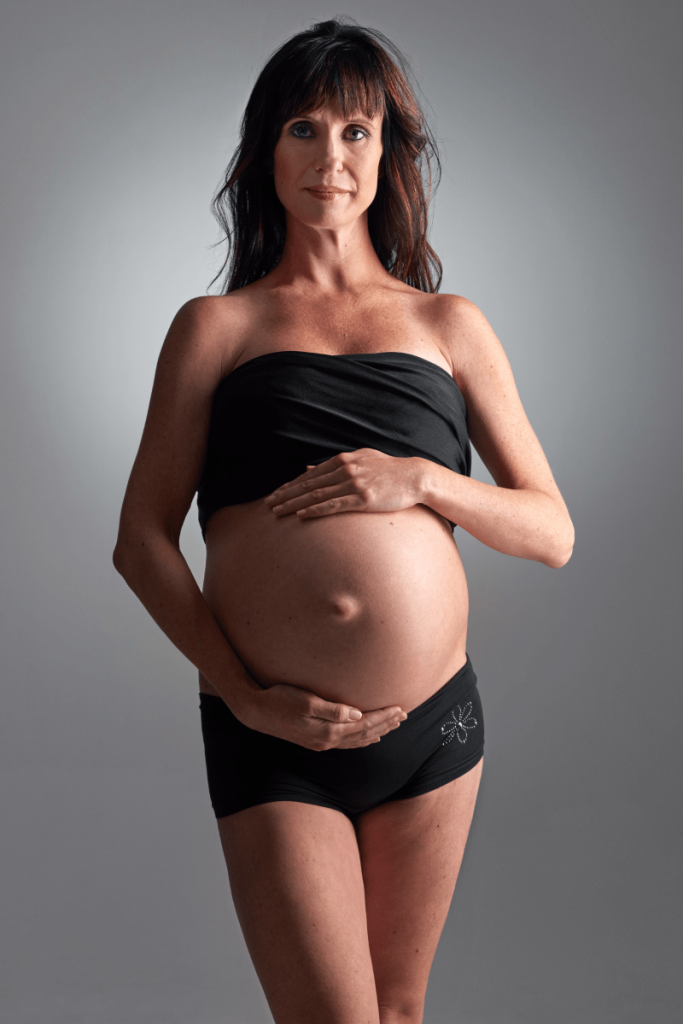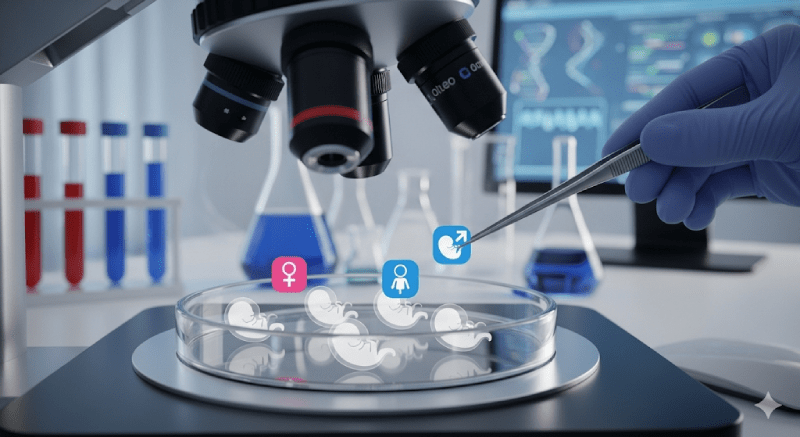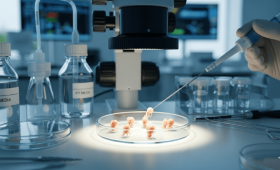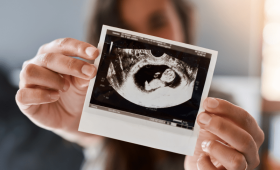What Are The Quality Standards Of IVF Centers In Thailand?
IVF centers in Thailand adhere to the highest quality and technology standards recognized internationally. Many leading centers are accredited by global healthcare organizations such as JCI (Joint Commission International). This means that the hospital and laboratory’s hygiene, patient safety protocols, and technical competency are regularly audited.
Modern laboratories utilize advanced technologies such as vitrification (rapid freezing) and Time-Lapse incubators to optimize embryo development. These high standards are the key factors making Thailand a reliable and preferred center in medical tourism and fully meet the expectations of international patients.
Can Thailand’s Success Rates Be Compared With Global Standards?
The IVF (In Vitro Fertilization) success rates in Thailand, especially in younger patient groups under the age of 35, are high enough to compete with the best centers in the USA and Europe. This success is supported not only by the use of advanced technology but also by the application of personalized treatment protocols and experienced embryology teams who are experts in their field.
Live birth rates are reported transparently in accordance with international auditing standards. Therefore, couples undergoing treatment in Thailand can be sure that they are receiving an international-quality service with high success potential. Examining the detailed breakdown of success rates by age is crucial for planning.
How Do Success Rates Vary By Age Group In Thailand?
In Thailand, as is the case globally, IVF success rates vary significantly depending on the prospective mother’s age. While live birth rates are at their highest level in women under 35 (in the range of 50-60% in some centers), this rate noticeably decreases after the age of 40 due to the natural decline in egg quality. For women aged 43 and older, the rates may fall to single digits. Clinics in Thailand strive to increase the chance of success for older patients by applying special PGT (Genetic Screening) and personalized ovarian stimulation protocols.
How Does The PGT Procedure Affect The Success Rate?
The PGT (Preimplantation Genetic Test) procedure helps to control the genetic health of embryos (whether the chromosome count is normal or not) before they are transferred. This test, especially in older women or couples with a history of recurrent miscarriage/unsuccessful attempts, significantly increases the success rate per transfer by enabling the selection of genetically normal (euploid) embryos. Since abnormal embryos are eliminated with PGT, the risk of miscarriage decreases, and the probability of a live birth is maximized. Thai centers are highly effective in increasing transfer success by applying PGT technology to the highest standards.
What Methods Are Used To Improve Egg Quality In Thailand?
Fertility centers in Thailand apply various modern methods to improve egg quality. Chief among these are personalized stimulation protocols meticulously adjusted according to the patient’s individual hormone profile and ovarian reserve. Additionally, experimental treatments aimed at supporting ovarian function, such as PRP (Platelet-Rich Plasma) application or special supportive supplements, are also available in some centers. However, the most important factor is starting treatment at the appropriate time to find the most genetically healthy egg and implementing correct nutrition and lifestyle changes.

Which Accreditations Should Be Sought When Choosing Clinics In Thailand?
When choosing an IVF center in Thailand, it is essential to first check if it has the JCI (Joint Commission International) accreditation. JCI is a certificate indicating that a healthcare organization meets the highest quality and patient safety standards recognized internationally. Additionally, attention should be paid to whether it is subject to ISO certifications indicating laboratory competence or relevant national health ministry inspections. These accreditations are the strongest evidence that you are not compromising on quality despite the high cost of treatment and are in a reliable center.
What Expenses Are Covered By IVF Costs In Thailand?
IVF costs in Thailand generally cover the basic IVF package, egg retrieval (OPU), embryo transfer, and laboratory procedures. However, this basic fee does not include PGT, the hormone medications used, embryo freezing fees, and annual storage costs. These additional expenses significantly increase the treatment budget in Thailand. When getting a price quote, it is crucial to clearly ask what is included and what is not and to seek international consultation to avoid unexpected additional fees.
How Long Is The Required Stay In Thailand During The Treatment Period?
The duration of stay in Thailand for a fresh IVF cycle, from the start of ovarian stimulation until the embryo biopsy or transfer, usually varies between 15 and 20 days. Patients must be present in the city where the treatment is performed in the country during this period and attend doctor appointments regularly. If a frozen embryo transfer (FET) is to be performed, uterine preparation can start in the patient’s home country, and a shorter visit of 3 to 7 days to Thailand for the transfer procedure alone will suffice.
How Do Clinics In Thailand Support International Patients?
Clinics in Thailand offer comprehensive support services designed to maximize the international patient experience. These services include multilingual international patient coordinators, arrangement of airport transfers, accommodation advice, and management of English translations for all medical reports. This coordination allows patients to focus solely on the treatment process without dealing with appointment tracking and communication barriers. Agencies like Cure Holiday centralize this support, making the process even smoother.
Is An Upper Age Limit Applied For IVF Treatment In Thailand?
No clear upper age limit is legally specified for IVF treatment in Thailand. However, due to their own ethical boards and medical policies, clinics may be hesitant to offer treatment with their own eggs to women in advanced age groups (generally 45 years and older) where the chance of success is very low. In this case, clinics meticulously evaluate the patient’s general health status and ovarian reserve; they may usually direct them to alternative methods such as egg donation.
How Does Single Embryo Transfer (SET) Practice Affect Success?
Advanced centers in Thailand strongly encourage the practice of Single Embryo Transfer (SET) to reduce the risk of multiple pregnancies and protect maternal and fetal health. When an embryo confirmed to be genetically healthy with PGT is transferred, SET offers a high success rate and prevents the serious health risks (preterm birth, low birth weight) associated with twin or triplet pregnancies. This approach is a fundamental practice that reflects the safety and high quality of clinics in Thailand.
How Safe Are Embryo Freezing And Storage Procedures?
Clinics in Thailand use the vitrification (rapid freezing) technique, the most reliable and modern method available today, for freezing embryos. This technique prevents the formation of ice crystals in the embryos, keeping viability rates extremely high after thawing. This ensures that healthy embryos remaining from the first attempt can be used in future attempts, which also increases cost-effectiveness. Embryo storage procedures are subject to international standards and strict legal regulations.
Which Preliminary Tests Are Required Before Starting Treatment In Thailand?
To personalize the treatment protocol, Thai clinics request standard preliminary tests. Ovarian Reserve Tests (AMH, FSH, E2), ultrasound evaluation, and a hysterosalpingogram (HSG) results are requested from the prospective mother. A current and detailed sperm analysis is mandatory for the prospective father. Additionally, infectious disease screenings (HIV, Hepatitis B/C) are requested from both partners. Having these tests done in the patient’s home country and translated into English before coming for treatment accelerates the process.
How Do Prices In Thailand Compare With TRNC And Mexico?
IVF prices in Thailand can generally be higher than other popular legal centers like the Turkish Republic of Northern Cyprus (TRNC) and Mexico. This is due to Thailand’s high luxury service quality, general cost of living, and slightly higher personnel wages. TRNC and Mexico offer a cost-effective alternative by providing similar technological standards to Thailand with lower operating costs. Couples can compare these three centers through Cure Holiday to find the balance between budget and quality.
What Is The Cost Of Medications Used In Treatment In Thailand?
The cost of hormone medications used in IVF treatment in Thailand adds an extra burden to the total budget, although this cost is lower than in the USA. Medication expenses typically range between 1,500 USD and 4,000 USD, varying according to the patient’s response and dosage. These medications are not included in the basic treatment package. It is important for patients to clarify the estimated prescription breakdown and cost before treatment to avoid unexpected expenses.
Is It Safe To Travel By Plane After The Transfer?
Traveling by plane immediately after embryo transfer is generally considered safe. The embryo, once placed inside the uterus, is not negatively affected by air pressure or flight movements. However, doctors may recommend resting for a while for the effects of light sedation to wear off. Taking simple precautions recommended by the doctor to reduce the risk of clotting, such as light movement during long flights and drinking plenty of water, is important. Couples can usually return home safely 1-2 days after the transfer.
How Is The Success Of Frozen Embryo Transfer (FET)?
The success of Frozen Embryo Transfer (FET) in Thai centers is generally higher compared to fresh cycle transfers. The main reason for this is that FET is performed in a more natural and receptive uterine environment, free from the effects of the high hormone levels caused by ovarian stimulation. Furthermore, freezing and thawing embryos confirmed to be genetically healthy with PGT guarantee that the embryo to be transferred has the highest potential.
How Is The Language Barrier Resolved During Treatment In Thailand?
International clinics in Thailand work with professional and multilingual staff to overcome the language barrier. Patients are assigned international patient coordinators who are proficient in English or other common languages and accompany them throughout the entire process from appointment scheduling to doctor consultations. Professional interpreters are present during critical medical procedures. This comprehensive language support prevents misunderstandings and makes the process easier by allowing patients to fully focus on the treatment. Cure Holiday also guarantees this communication support.
What Methods Are Applied For Recurrent Failures In Thailand?
Expert clinics in Thailand offer comprehensive research and additional treatments for couples experiencing recurrent implantation failure (RIF). These include determining the most receptive time for the uterine lining to accept the embryo with ERA (Endometrial Receptivity Analysis), addressing intrauterine problems (polyps, fibroids) with hysteroscopy, or applying additional treatments like PRP (Platelet-Rich Plasma). These personalized and advanced approaches aim to maximize the chance of success for the next attempt.

What Are The Locations Of IVF Centers In Thailand?
International standard IVF centers in Thailand are typically concentrated in the country’s capital, Bangkok. Bangkok is the most preferred city due to its developed medical infrastructure and ease of international travel and accommodation. These centers are located either in the main hospital building or in specially designed modern buildings. Easy access and proximity to the airport provide a significant logistical advantage for patients coming from abroad, which enhances the comfort of the treatment.
What Should Be The Lifestyle Before Starting Treatment In Thailand?
Before starting treatment in Thailand, making radical changes in lifestyle is very important to increase the chance of success. Quitting smoking and alcohol completely for both women and men, and adopting an antioxidant-rich Mediterranean-style diet are recommended. Achieving ideal body weight and doing regular but light exercise also positively affect egg and sperm quality. Activities that help reduce stress support psychological preparation and make the treatment process easier.
What Is The Impact Of The PGT Procedure On The Treatment Budget?
The impact of the PGT (Preimplantation Genetic Test) procedure on the treatment budget in Thailand is generally reflected as an additional cost between 3,000 USD and 6,000 USD. This cost covers the genetic analysis fee per embryo and the biopsy cost. While PGT fees in Thailand are at international standards, they may be more affordable than in the USA. Although PGT increases the cost, it increases cost-effectiveness in the long run by reducing the risk of recurrent unsuccessful attempts because it guarantees the transfer of a genetically healthy embryo.
What Is The Cost Of Additional Laboratory Techniques Used In Treatment?
Additional laboratory techniques used to increase treatment success in Thailand (e.g., Time-Lapse incubators, Assisted Hatching, embryo glue) may not be included in the standard package and may incur extra costs. Additional fees varying by clinic are requested for each of these advanced techniques. However, since these techniques help select the best embryo and increase the chance of implantation in the uterus, they can provide a cost advantage indirectly by reducing the total number of attempts in the long run.
Are Psychological Support Services Available For IVF Treatment In Thailand?
Many international IVF centers in Thailand offer psychological support services to help manage the intense emotional pressure and stress created by the treatment. This support can be provided through psychologists affiliated with the clinic or as individual or couples therapy. It is very important to utilize this support to alleviate the feeling of isolation that comes with receiving treatment abroad and to increase emotional resilience. Cure Holiday advises choosing centers that have such support mechanisms.
How Should Healthy Pregnancy Follow-up Be Done After Treatment In Thailand?
After successful IVF treatment in Thailand, follow-up upon the patient’s return to their home country must be done by a local obstetrician and gynecologist. All detailed treatment and transfer reports from the clinic in Thailand, especially the continuation protocols for progesterone and other supportive medications used, must be fully presented to the local doctor. This is critically important for a healthy and continuous follow-up process during the first critical months of pregnancy.
What Factors Other Than Price Are Important When Choosing Clinics In Thailand?
Factors more important than price when choosing clinics in Thailand include the up-to-dateness and quality of the embryology laboratory, the duration of experience of the embryologist and specialist team, international JCI accreditation, and transparent success rates. Furthermore, the language support and logistical organization skills offered to international patients are also critical factors that directly affect the comfort of the treatment. These factors are the guarantee that your investment, regardless of the cost, is being made in a reliable process.
What Are The Unexpected Expenses That May Be Encountered During The Treatment Period In Thailand?
Unexpected expenses that may be encountered during the treatment period in Thailand include unexpected increases in medication dosages, expenses for OHSS (Ovarian Hyperstimulation Syndrome) treatment which rarely occurs, or the need for additional blood tests/ultrasound. Furthermore, accommodation extensions planned longer than expected or unexpected travel delays can also add an extra burden to the budget. It is recommended to allocate approximately 10-15% of the total treatment budget as an emergency fund for such unforeseen circumstances.
How Are Treatment Prices In Thailand Managed Regarding Exchange Rate Risk?
Since treatment prices in Thailand are generally indexed to the US Dollar or Euro, fluctuations in the local currency of patients against the exchange rate pose an exchange rate risk. To manage this risk, couples can request the clinic to fix the price based on a stable exchange rate or transfer a large portion of the treatment fee at the start of the treatment. Agencies like Cure Holiday help manage the risk by structuring payment plans to be less sensitive to exchange rate fluctuations.

What Legal Documents Are Requested Before Treatment In Thailand?
Before starting treatment in Thailand, basic legal documents are requested from couples. These include passport or ID copies, marriage certificate (a legal necessity for some clinics), English translations of all medical reports, and the signing of informed consent forms outlining patient rights and responsibilities. Completing these documents fully ensures that the treatment process is built on a solid legal foundation.
How Long Does Frozen Embryo Transfer Take And What Is Its Cost In Thailand?
The Frozen Embryo Transfer (FET) procedure in Thailand generally lasts 3 to 7 days, as it only requires travel for the transfer itself. This short stay is a major logistical advantage compared to the fresh cycle. The FET cost is approximately 30% to 50% of the fresh cycle cost, as the expenses for egg retrieval and laboratory procedures are eliminated. This is the most common way to get a new chance at an affordable cost after an unsuccessful attempt.
What Methods Are Used To Improve Sperm Quality In IVF Centers In Thailand?
Thai centers use various laboratory techniques in addition to lifestyle changes to improve sperm quality. The most important of these are advanced sperm selection methods such as IMSI (Intracytoplasmic Morphologic Selection) and PICSI (Physiological ICSI), which prepare the highest quality sperm for microinjection (ICSI). Additionally, holistic approaches aimed at reducing sperm DNA damage through nutritional and supplement recommendations are also offered.
What Makes Thai Clinics Attractive To International Patients?
The factors that make Thai clinics attractive to international patients are the combination of high-tech infrastructure, JCI-accredited clinics, competitive prices, and a unique medical tourism experience. Patients can receive treatment in the comfort of a holiday, benefit from advanced infrastructure, and manage all their logistical processes from a single center. This balance of luxury service and quality is the most important feature that makes Thailand stand out in the medical tourism market.
What Medical Supports Are Used To Increase IVF Success In Thailand?
To increase IVF success in Thailand, PGT (Genetic Screening), Time-Lapse incubators for selecting the best embryo, Assisted Hatching to facilitate the embryo’s attachment to the uterus, and special transfer media like Embryo Glue are used. Additionally, personalized protocols with vitamin/mineral supplements or medications are also applied to support the ovaries and uterus. These supports aim to increase the compatibility between the embryo and the uterine lining.
Is Gender Information Provided During PGT In Thailand?
While gender information is usually technically obtained during PGT in Thailand, the sharing of this information with the patient and the application of social purpose (family balancing) gender selection are legally restricted or subject to scrutiny. Thailand’s laws generally prohibit gender selection outside of medical necessity. Therefore, couples seeking a legally comfortable gender selection process may be more inclined to turn to alternative countries like TRNC or Mexico that clearly permit this service.
Why Is Receiving Treatment In Thailand Easier With Cure Holiday?
Receiving treatment in Thailand is much easier and safer with Cure Holiday. Cure Holiday not only selects internationally accredited clinics with high success rates for you. It also organizes treatment packages suitable for your budget, plans all travel, accommodation, and airport transfers, and provides professional interpretation services throughout the treatment. This allows you to focus solely on the success of your treatment, eliminating the organizational difficulties in Thailand.
What Is The Quality Control Of PGT Laboratories In Thailand?
PGT laboratories in Thailand undergo strict quality control processes to perform genetic analysis at international standards. These laboratories generally have international certifications such as CAP (College of American Pathologists) or ISO and are subject to regular external audits. The up-to-dateness of the genetic sequencing (NGS) technologies used and the experience of the embryologists performing the biopsy form the basis of the laboratory quality. This situation ensures that genetic results are obtained with over 99% accuracy.


